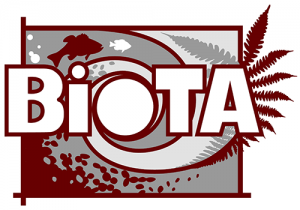BioTA brings together researchers across disciplines interested in using conceptual and mathematical modeling to better understand biology.

“Theory can be an axis that unites research at a variety of scales, from cancer cells to microbes to animals to ecosystems,” says Goldberg, in explaining the subject’s broad appeal. Goldberg uses mathematical models to answer questions about why species inhabit a particular geographic range, and how the various ways that plants reproduce contribute to speciation and extinction.
BioTA focuses on theoretical approaches to questions in organismal biology, but it casts a wide net that encompasses areas of biology, math, statistics, software engineering, computer science and education. Researchers connected with the group investigate a wide range of questions from the processes that drive microbial community dynamics to infectious disease dynamics.
"Although the biological applications that its members are studying are very diverse," says Jasmine Foo, an assistant professor in the School of Mathematics, "our common theoretical toolset and approaches gives us a unifying language for fruitful research interactions."
“Experimental and observational work tell you about the world empirically,” says Shaw, who develops theory for the evolutionary ecology of movement. “Theory is the scaffolding that makes sense of those data.”
Currently, BioTA includes faculty from the College of Biology Sciences, the College of Food, Agricultural and Natural Resource Sciences, the College of Liberal Arts, the College of Science and Engineering, the College of Veterinary Medicine, and the School of Public Health.
“A lot of people across campus are working with theoretical approaches to biology,” says Goldberg. “We wanted to bring people together, in part, to build awareness that Minnesota is a great place to do this work.”
Interested in participating? Contact biota@umn.edu.
— Stephanie Xenos